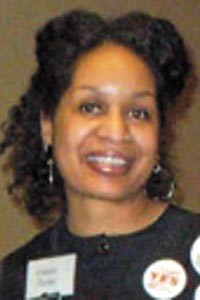One story Pittsburgh tells is that it's the Smoky City that quit smoking ... and got green. The narrative even helped persuade the political progressives at Netroots Nation to hold their annual conference this week at the energy-conscious David L. Lawrence Convention Center.
But at least one Netroots panel discussion will note that Pittsburgh's economy is not nearly as green as it -- and every city's -- needs to be. Meanwhile, Netroots events tackling climate change will emphasize that thinking globally is just as important as acting locally.
On Thu., Aug. 13, one panel discusses Green Economy in the 'Burgh. And while everyone wants things like renewable energy, the varying perspectives of panelists suggest that "green" is partly in the eye of the beholder.
One panelist is also perhaps the nation's most famous small-town mayor. Braddock's outspoken Mayor John Fetterman, recently profiled in Rolling Stone, also testified before both houses of Congress favoring passage of President Obama's "clean energy" bill, intended to reduce greenhouse-gas emissions.
Fetterman shrugs off environmentalist complaints that the bill is flawed. Battered old Mon Valley mill towns like his, he says, have brownfields ready for green-energy research plants -- and even a steel mill for fabricating the makings of wind turbines (as the Environmental Defense Fund's ad campaign featuring Fetterman suggested). "Being against this to me would be like 30 years ago being against the Internet," he says.
Panel host Billy Wimsatt, the nationally known author and activist who founded the League of Young Voters, now works for Green For All, a national organization dedicated to using green jobs to fight poverty. Green For All's concerns are echoed by local activist Celeste Taylor, who heads the Black Political Empowerment Project's Regional Equity Monitoring Project. The initiative tracks whether public funding actually helps, for instance, minority and women-owned businesses. Social justice, economic development and green thinking go hand-in-hand, Taylor says: "Activists are just a lot more aware of the need to connect the environment to everything."
A fourth panelist, Mark Dixon, helps run YERT (Your Environmental Road Trip), which catalogues thinking about environmentally sustainable economies. He advocates replacing traditional ideas about economic growth -- more money spent, more stuff consumed -- with a "steady state" model, which measures quality of life rather than quantities of goods.
Dixon notes that despite minimal economic growth, Pittsburgh still tops most-livable-city surveys; he believes we should embark on a community-wide "envisioning process" that might get results like Portland, Ore.'s fervent embrace of bike trails -- or perhaps an initiative to clean the air by phasing out coal-fired power plants. "What can Pittsburgh do that will set us apart on an international scale?" he asks.
Netroots Nation also addresses the top global environmental problem: climate change. Aug. 13's Countdown to Copenhagen panel, for instance, explores how eco-bloggers and climate activists can influence the international climate summit, to be held in December, widely viewed as a last chance to avert a climate catastrophe.
Meanwhile, also on Aug. 13, some of the 'Net's top climate journalists convene for
A Warming Web: The Blogosphere and Climate Change. The big question: Why don't bloggers yell as loudly about melting ice sheets as they do, for instance, about the insurance industry's stranglehold on health care? "It's not top-of-mind among progressives the way it merits," says Dave Roberts, who blogs for the popular environmental site grist.org.
Roberts acknowledges that climate issues are wonky, don't reduce easily to anecdotes and pose threats that seem comfortably far in the future (even if they're not). And he notes that Obama's health-care bill has delayed consideration of his energy bill.
Joining Roberts on the seven-member panel is Grist's political reporter, Kate Sheppard. Sheppard agrees that more engagement -- by bloggers and everyone else -- is needed if the Senate is to pass even the watered-down energy bill. (Sen. Arlen Specter, for instance, is currently seen as a likely "no.")
Sheppard, who'll return to Pittsburgh next month for the G-20 summit, adds that if the energy bill fails to pass, the U.S. will have scant leverage in Copenhagen -- possibly a mortal blow to any truly global efforts to halt climate change.





















